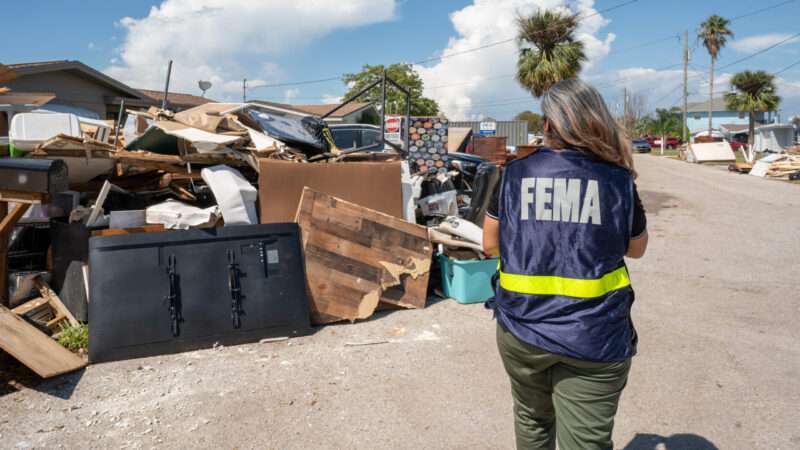
It's been a rough hurricane season. Between them, Hurricanes Helene and Milton have devastated many communities throughout the southeast. Rebuilding what was lost will take years.
But as devastating as these storms have been, they are sadly not unique. Property damage from storms and flooding is on the rise. Storms resulting in over a billion dollars in damages have become more frequent in recent years.
The prospect of repeatedly having to rebuild properties in storm-prone areas has led some governments to pursue an unusual solution to the problem: buy the properties themselves. Some local governments, in partnership with federal agencies such as the Department of Housing and Urban Development (HUD) and the Federal Emergency Management Agency (FEMA), have developed programs that use disaster relief funds to purchase homes in flood- or storm-prone areas. This isn't the only way, or even the best way, to reduce the destruction from increasingly severe natural catastrophes. But the idea is that keeping such vulnerable properties vacant will save money in the long run because they won't need to be continually rebuilt after storms.
Such buyouts are hardly ideal and can lead to some perverse situations. In 2021, an NPR investigation revealed that HUD was selling homes in flood-prone areas to unsuspecting buyers even as it was buying out homes in the same neighborhoods under a flood mitigation program. While not ideal, in a world where government disaster relief is a given, a voluntary buyout program could make fiscal sense in some circumstances. Voluntary buyout programs have been implemented in over a thousand counties and have been used to relocate almost 50,000 households throughout the country.
The situation is very different when the buyout ceases to be voluntary. A little-known provision in the Hazard Mitigation and Relocation Assistance Act of 1993 authorizes local governments to implement a mandatory buyout program for flood-prone areas. So far, just three localities—Cedar Rapids in Iowa, Minot in North Dakota, and Harris County in Texas—have adopted a mandatory buyout program. The Harris County program is the largest of the three and is expected to forcibly purchase 585 households and 390 businesses by 2026 and turn the land into green space.
Most local governments have been wary of taking advantage of mandatory buyout authority, and for good reason. While states have the power of eminent domain and may use federal funds for this purpose under the law, the process is always fraught and ripe for abuse. With a voluntary buyout, governments must offer a purchase price high enough to entice homeowners to sell. But when the buyout is mandatory, governments have the incentive to low-ball their payments. Such programs can also raise other issues. Harris County faced accusations of discrimination since its mandatory buyout program had operated chiefly in majority-Hispanic neighborhoods while majority-white neighborhoods with similar flood risk profiles were offered voluntary buyouts or other flood mitigation options.
Instead of taking people's homes, the government should be looking for other ways to reduce flood risk. Both the federal and state governments have long encouraged development in storm-prone areas by offering below-market-rate flood insurance and other forms of assistance. These subsidies should stop, and the government should do more to make people aware of the risks faced by homeowners in vulnerable areas. Governments could also focus on increasing efforts to make vulnerable areas more resilient to storms. Research suggests that a dollar spent on resilience saves as much as $13 in avoided future losses.
Beyond these matters of dollars and cents, there is a question of values. America is a nation founded by risk-takers, where liberty and property rights are given priority. The desire to protect the lives of American citizens—as well as the public purse—is commendable, and the government should, of course, not subsidize risky behavior. But the desire for safety cannot become an excuse to force people out of their own homes.
The post What Happens When FEMA Buys Your House? appeared first on Reason.com.







